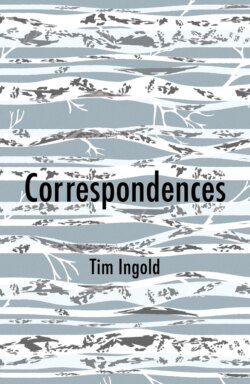Читать книгу Correspondences - Tim Ingold - Страница 10
A waste of knowing
ОглавлениеAll knowledge is crap: the waste product of a metabolic reaction. That, at any rate, is the conclusion which inevitably follows from the model of knowledge production imposed by our masters, whether they be educational institutions, business corporations or agents of the state. According to this model, knowledge is produced by harvesting quantities of data, and feeding it into machines that digest or process this ‘input’ and excrete the results, also known as ‘output’, at the other end. This excrement is the marketable currency of the knowledge economy. To the extent that human beings are involved at all in the productive process, they are but operators or technicians, there to serve the machines: to keep them supplied and in working order. Ideally, their presence and activity – beyond ensuring that the machines work – should have no bearing on the results. Inputs go in, outputs come out, what happens in-between is of no particular consequence. And as the results pile up, and the excremental heaps of knowledge relentlessly swell, life itself is consigned to the margins, fated to scavenge what it can from the accumulated waste of data processing on an industrial scale.
It is not beyond our grasp, however, to imagine an alternative world, in which the machines have been replaced with people. These people might still speak of ‘data’, but they would intend the term to be taken literally, as that which is given to them, so that they might live and know. They accept, with good grace, what the world offers to them, rather than attempting to extract – whether by force or subterfuge – what it does not. They are nourished by this offering, just as they are by the food they eat, and, as with food, they go on to digest it. But for them digestion is, above all, a process of life and growth. In producing knowledge, then, they are also producing their own selves as people who know. They are of course aware that any such process entails a degree of friction: not everything can be incorporated into growth and some things pass through undigested. There is surely no craft that does not, in the fashioning of its materials, generate copious quantities of waste, whether in the form of dust, shavings, chips or off-cuts. It is no different with the crafts of the intellect. But in this alternative world, waste is not knowledge. It only becomes knowledge when it is re-entered into a process of life.
No living being, however, can persist indefinitely, nor can it carry on its life in isolation. The continuity of life – and hence of knowledge too – requires of every being that it should play its part in bringing other lives into existence and sustaining them for however long it takes for the latter, in turn, to engender further life. It follows that all living, and all knowing, is intrinsically social, whether it be of trees in a wood, beasts in a herd or human beings in a community. Social life is one long correspondence. More precisely, it is a tangled mesh of correspondences, all going on concurrently, which weave into and around one another. They run, spinning here and there into topics like eddies in a stream. And they have three distinguishing properties. First, every correspondence is a process: it carries on. Secondly, correspondence is open-ended: it aims for no fixed destination or final conclusion, for everything that might be said or done invites a follow-on. Thirdly, correspondences are dialogical. They are not solitary but go on between and among participants. It is from these dialogical engagements that knowledge continually arises. To correspond is to be ever-present at the cusp where thinking is on the point of settling into the shapes of thought. It is to catch ideas on the fly, in the ferment of their incipience, lest they be washed away with the current and forever lost.
